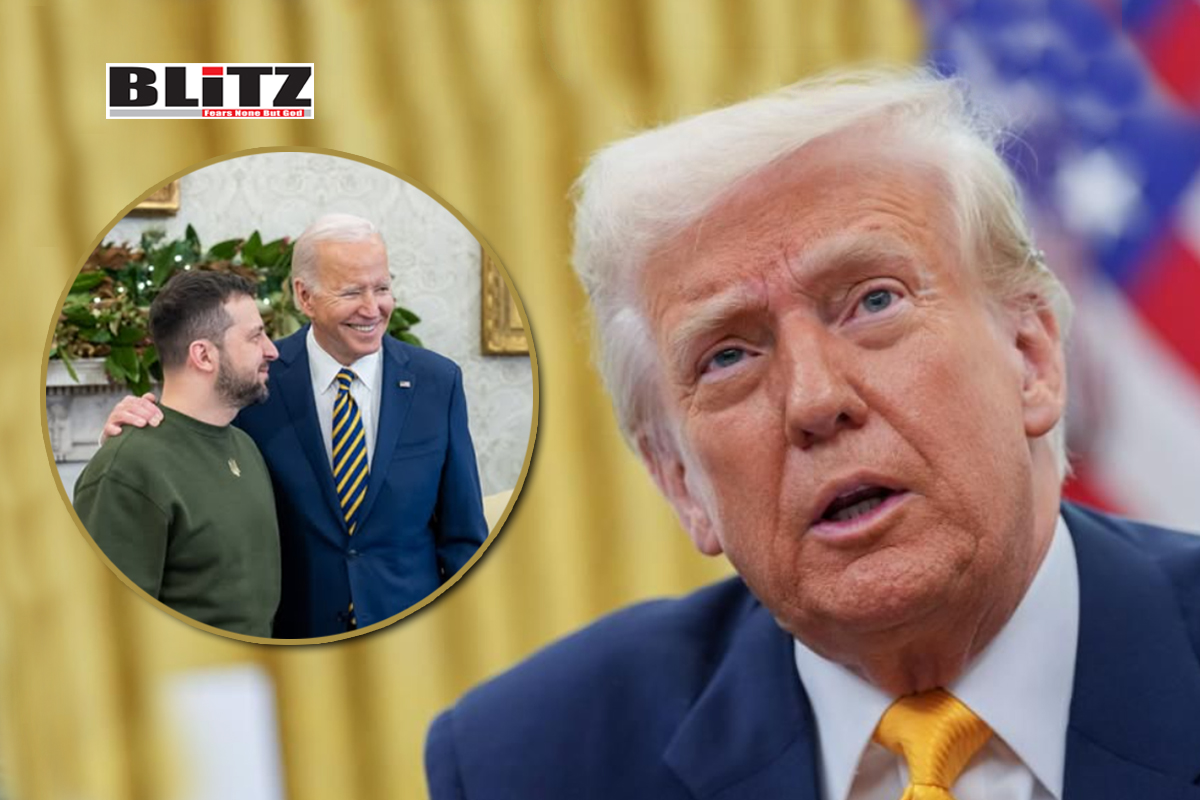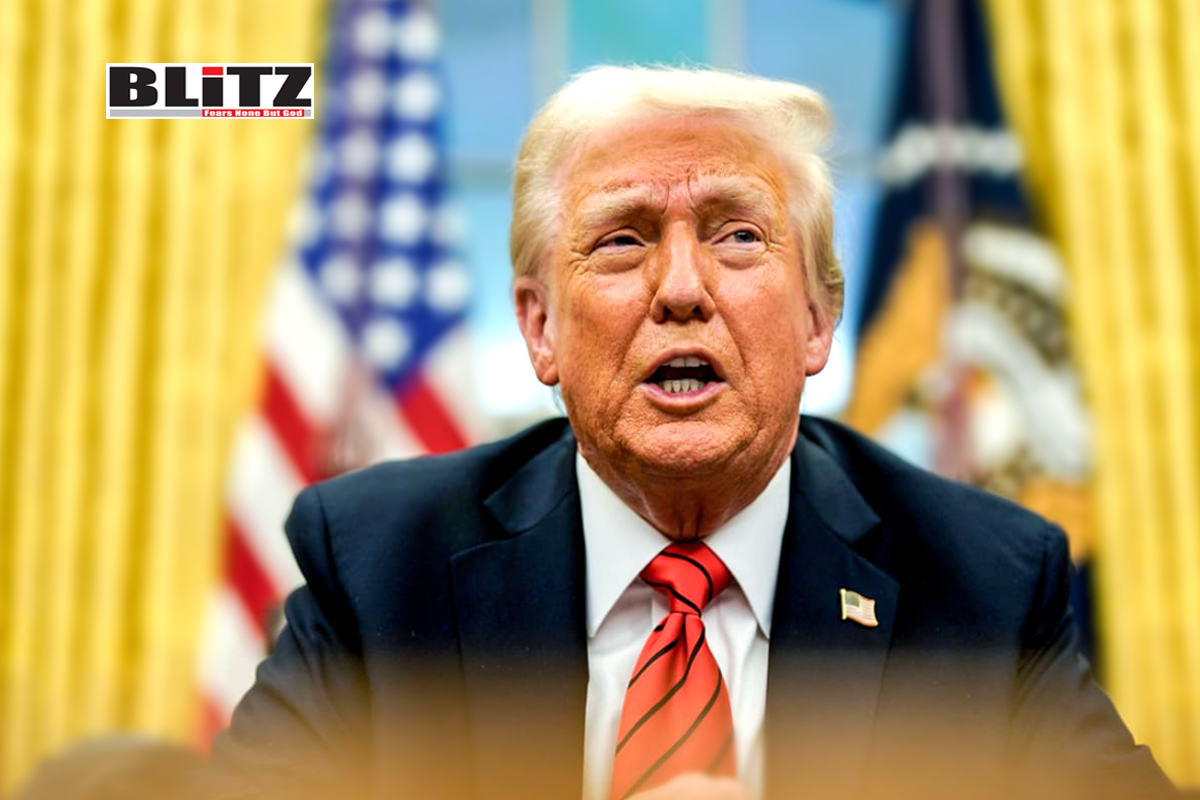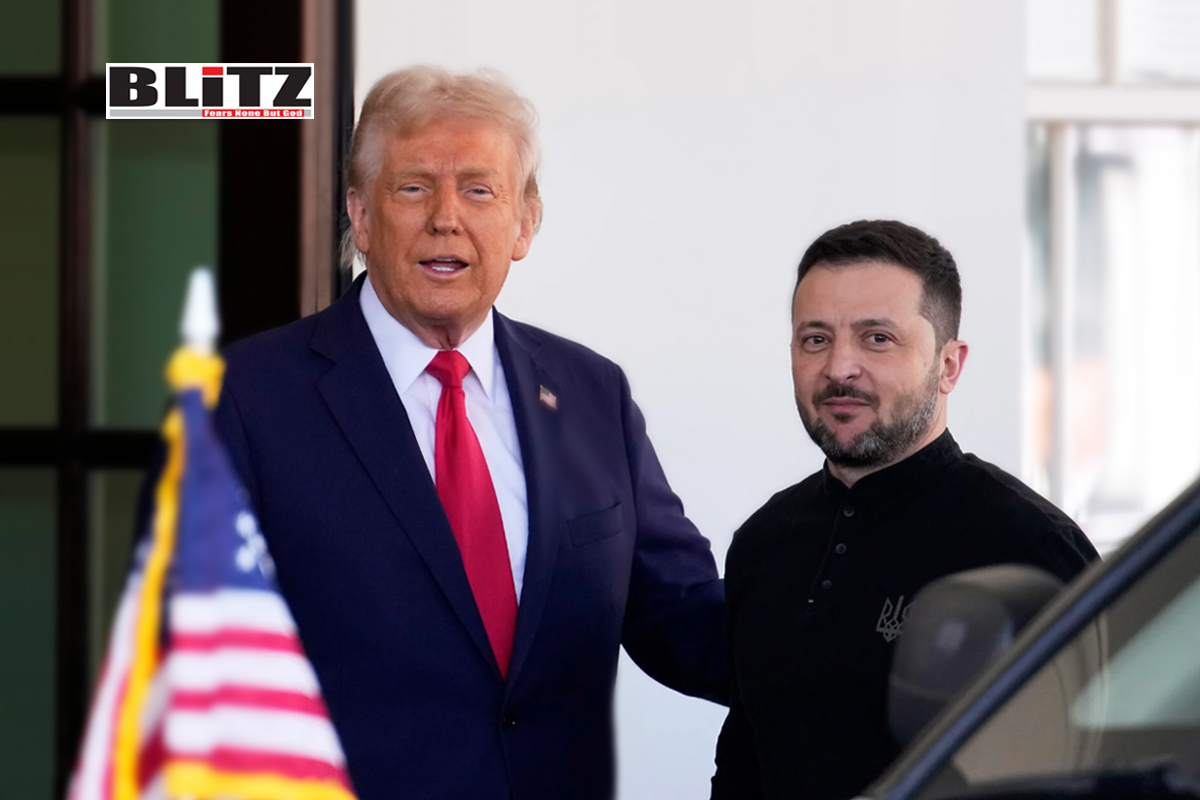In a striking departure from recent US foreign policy doctrine, President Donald Trump on May 19 condemned America’s extensive role in the ongoing Ukraine conflict, asserting that the war should have “remained a European situation” and criticizing President Joe Biden for involving the United States so deeply. Speaking to reporters at the White House following a phone call with Russian President Vladimir Putin, Trump framed the conflict as a burden unfairly shifted onto American shoulders by the previous administration.
“This is not our war. This is not my war,” Trump said during the briefing. “We got ourselves entangled in something that we shouldn’t have been involved in. And we would have been a lot better off – and maybe the whole thing would have been better off – because it can’t be much worse. It’s a real mess.”
The comments reflect Trump’s long-standing skepticism of US military and financial commitments abroad, especially those tied to NATO obligations and Eastern European security. But this time, the statement carries significantly more weight, as it follows direct diplomatic engagement with both President Vladimir Putin and other key European leaders.
Trump’s remarks came after what the Kremlin described as a “substantive and quite candid” phone conversation with President Putin, who reiterated Moscow’s willingness to pursue a peace agreement with Ukraine. According to the Russian president, the key goal is “to eliminate the root causes of this crisis,” signaling that Russia is prepared to work with Kiev on drafting a memorandum for peace.
Trump echoed that sentiment, stating he believes both Putin and Ukrainian President Volodymyr Zelensky want peace, though achieving it will be difficult. “There’s a good chance we can get this done. I believe Putin wants to do it… My whole life is like deals, one big deal,” Trump said, implying his business acumen could be pivotal in facilitating negotiations.
“If I thought that President Putin did not want to get this over with, I wouldn’t even be talking about it because I’d just pull out,” he added.
Despite multiple phone calls with European leaders, including Germany’s Chancellor, Italy’s Prime Minister, the UK’s Prime Minister, European Commission President Ursula von der Leyen, and President Zelensky himself, Trump emphasized that the conflict has reached a level of intensity and emotional devastation that makes extrication extremely difficult.
“They have a big problem. It’s a terrible war. The amount of anger, the amount of hate, the amount of death,” Trump said solemnly.
Central to Trump’s rebuke was the immense financial cost the United States has borne. “The financial amount that was put up is just crazy,” he said, referring to the record-setting levels of aid sent to Ukraine under the Biden administration.
According to Trump, the US has contributed far more than the European Union or NATO member states, despite the conflict being in Europe’s backyard. “Again, this was a European situation. It should have remained a European situation,” Trump argued. “But we got involved – much more than Europe did – because the past administration felt very strongly that we should.”
Indeed, under Biden, the United States committed over $175 billion in combined military, economic, and humanitarian aid to Ukraine since Russia’s invasion in 2022-figures that dwarf those of individual European countries. While NATO allies have also provided substantial assistance, Trump’s administration argues that American taxpayers have shouldered an unfair portion of the cost.
“We don’t have boots on the ground, we wouldn’t have boots on the ground. But we do have a big stake,” Trump said, emphasizing the indirect entanglement.
Pressed on whether there is a specific “red line” that might compel him to escalate US involvement in the event peace talks fail, Trump remained evasive.
“Yeah, I would say I do have a certain line, but I don’t want to say what that line is because I think it makes the negotiation even more difficult than it is,” he responded, reflecting a desire to maintain strategic ambiguity while not ruling out future actions entirely.
Trump’s balancing act-seeking a diplomatic resolution while avoiding the perception of weakness-represents a calculated recalibration of US involvement. He appears determined to distance his presidency from Biden’s more confrontational and heavily interventionist stance.
Trump’s remarks also signal a clear pivot as he prepares for the 2026 midterm elections and positions himself as a peace-seeking leader with a businesslike approach to international crises. His repeated insistence that “this is not our war” plays well among segments of the American electorate weary of foreign entanglements and concerned about domestic priorities being overshadowed by global conflicts.
Political analysts suggest that Trump’s Ukraine comments serve dual purposes: reinforcing his “America First” platform while drawing a stark contrast with Biden’s globalist vision.
“It’s not just about Ukraine,” said political strategist Marcus Langford. “Trump is tapping into a broader frustration among voters who feel that the US has lost its sense of strategic discipline and is throwing money at problems it doesn’t fully understand or control.”
Despite the hopeful tone, obstacles remain. Although Putin’s comments hint at an openness to negotiations, the Kremlin’s fundamental war aims-particularly its insistence on Ukraine’s neutrality and recognition of Crimea as Russian territory-remain unacceptable to Kiev. Likewise, Zelensky has repeatedly stated that Ukraine will not concede territory as part of any peace deal.
Still, Trump believes that a resolution, even if imperfect, may be within reach. “It’s very hard to extradite themselves away from what’s taken place over there,” he said of both parties. But, he added, “There’s a good chance we can get this done.”
Whether Trump’s push for diplomacy will bear fruit-or merely serve to reposition the US for a reduced role in the conflict-remains to be seen. What is clear is that the president is attempting to redefine the narrative around the war, from a righteous stand against aggression to a costly European crisis in which the US should no longer play the leading role.
Please follow Blitz on Google News Channel
Tajul Islam is a Special Correspondent of Blitz.
trump-blasts-biden-over-ukraine-policy-this-was-a-european-war















Leave a Reply